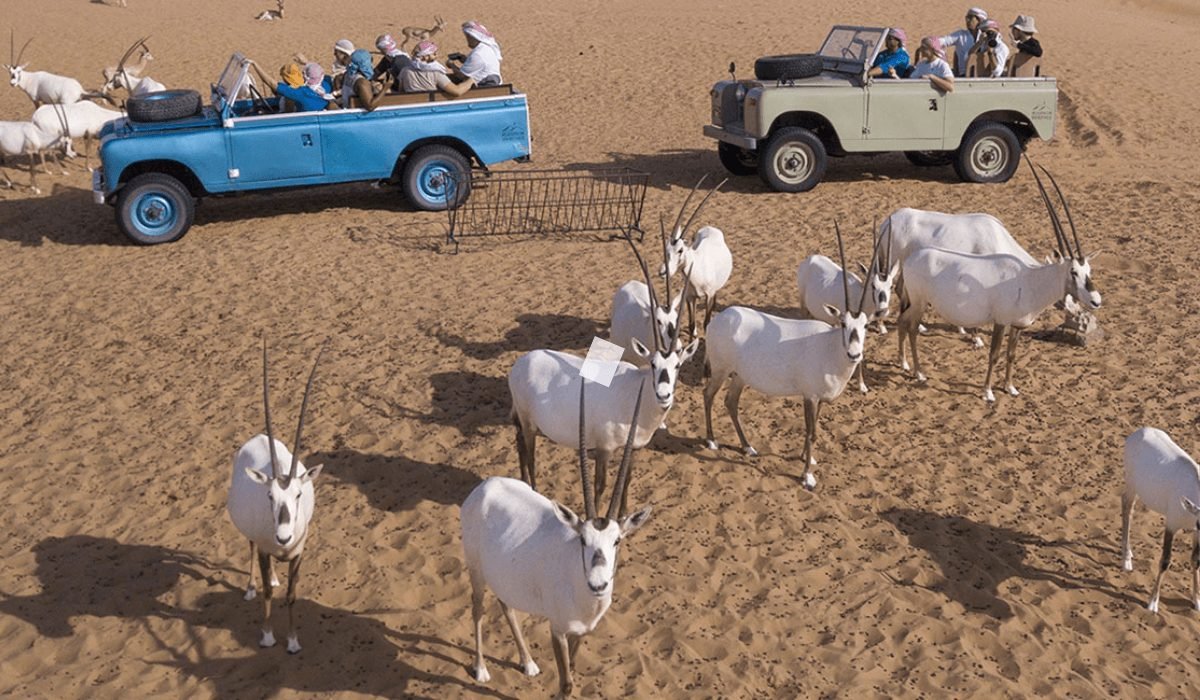Dubai, known for its iconic skyline and luxurious attractions, has also gained popularity for its thrilling desert safaris. These experiences allow tourists to immerse themselves in the stunning beauty of the desert while enjoying a range of activities. However, as the demand for desert safaris grows, so does the concern for the welfare of animals involved in these experiences. In this article, we will explore how Dubai ensures the welfare of animals used in desert safaris, focusing on the regulatory framework, animal welfare standards, training programs, collaborative efforts, and additional measures to safeguard animal well-being.
Understanding Desert Safaris in Dubai

Before delving into the topic of animal welfare, it is important to understand what desert safaris in Dubai entail. A desert safari typically involves activities such as dune bashing, camel riding, falconry displays, and traditional entertainment. These experiences provide a unique glimpse into the rich cultural heritage of Dubai, attracting thousands of visitors each year. However, it is essential to strike a balance between providing thrilling experiences and ensuring the welfare of the animals involved.
Importance of Animal Welfare in Desert Safaris
The ethical treatment of animals is crucial, not only from a moral standpoint but also for the long-term sustainability of the tourism industry. Dubai recognizes that neglecting animal welfare can harm its reputation as a leading tourist destination. Moreover, tourists are increasingly seeking responsible and sustainable travel options, including those that prioritize animal welfare. Thus, ensuring the well-being of animals in desert safaris is a top priority for the government and industry stakeholders.
Regulatory Framework for Animal Welfare in Dubai

Dubai has established a comprehensive legal and regulatory framework to safeguard the welfare of animals used in desert safaris. The Dubai Municipality, in collaboration with other government agencies, sets guidelines and enforces strict regulations. These regulations cover various aspects, including animal housing, transportation, handling, veterinary care, and training of animal handlers. The framework also includes penalties and consequences for non-compliance with animal welfare laws, ensuring accountability among desert safari operators.
Animal Welfare Standards and Guidelines
To provide clear guidelines for animal welfare in desert safaris, Dubai has developed stringent standards and guidelines. These standards outline the specific requirements for animal housing, transportation, and handling. For instance, animals used in desert safaris must have access to clean and suitable living conditions, adequate food and water, and protection from extreme weather conditions. The guidelines also emphasize the importance of minimizing stress and ensuring the natural behaviors of the animals are not compromised.
Animal Welfare Certification and Accreditation
Dubai encourages desert safari providers to obtain animal welfare certifications and accreditations. These programs assess the compliance of operators with established animal welfare standards. Certifications such as the Dubai Animal Welfare Assurance (DAWA) mark demonstrate that a desert safari provider meets the highest standards of animal care and welfare. By choosing certified providers, tourists can ensure that their desert safari experience aligns with ethical and humane practices.
Animal Encounters and Interactions
Animal encounters and interactions are a significant part of desert safaris. However, Dubai recognizes the need to balance these experiences with animal welfare considerations. It promotes responsible interactions where animals are treated with respect and their natural behaviors are not compromised. Measures such as limited contact durations, proper training for animal handlers, and avoiding activities that cause distress are implemented.
Training and Education for Animal Handlers
Proper training and education for animal handlers are essential to ensure the welfare of animals in desert safaris. Dubai emphasizes the need for training programs that focus on animal behavior, welfare practices, and humane handling techniques. By enhancing the knowledge and skills of handlers, Dubai aims to create a culture of empathy and understanding towards animals.
Animal Health and Veterinary Care
Maintaining the health of animals used in desert safaris is of utmost importance. Dubai mandates that desert safari operators provide regular veterinary care to their animals. Qualified veterinarians are responsible for conducting routine check-ups, administering vaccinations, and ensuring prompt medical attention when needed. This proactive approach helps prevent health issues and ensures the overall well-being of the animals.
Monitoring and Oversight
To ensure compliance with animal welfare standards, Dubai employs a robust system of monitoring and oversight. Regular inspections and audits are conducted by government authorities, animal welfare organizations, and industry professionals. The findings from these inspections drive continuous improvements and identify areas where further intervention is necessary.
Stakeholder Collaboration and Partnerships
Dubai recognizes that collaboration between government authorities, industry stakeholders, and animal welfare organizations is crucial in upholding animal welfare standards. Partnerships are formed to share knowledge, exchange best practices, and implement collective initiatives aimed at improving animal welfare in desert safaris. Such collaborations foster a holistic approach toward animal well-being.
Transparency and Public Engagement
Transparency plays a vital role in promoting animal welfare in desert safaris. Dubai encourages desert safari providers to be transparent about their animal welfare practices. This includes educating tourists about animal care, highlighting certifications or accreditations obtained, and addressing any concerns raised by the public. Public engagement campaigns are also conducted to raise awareness and encourage responsible tourism.
Case Studies: Exemplary Animal-Friendly Desert Safari Providers
Several desert safari providers in Dubai have embraced animal welfare as a core value. These providers have implemented innovative practices and initiatives to ensure the well-being of animals. By highlighting their success stories, we can learn from their experiences and encourage others to follow suit.
Economic Impact of Animal Welfare Practices
Prioritizing animal welfare in desert safaris not only benefits animals but also has a positive economic impact. Responsible animal use enhances tourist satisfaction, leading to repeat visits and positive word-of-mouth recommendations. Moreover, a reputation for animal-friendly practices attracts ethical tourists, contributing to the long-term growth and sustainability of the tourism industry.
Challenges and Future Directions
While Dubai has made significant strides in ensuring animal welfare in desert safaris, challenges still exist. These may include balancing the demand for unique experiences with animal welfare considerations and adapting to evolving industry trends. Continued research, innovation, and collaboration will be key in addressing these challenges and further improving animal welfare practices.
Conclusion
Dubai’s commitment to animal welfare in desert safaris is commendable. Through a comprehensive approach that includes regulatory frameworks, animal welfare standards, training programs, monitoring, and stakeholder collaborations, Dubai strives to ensure that animals used in desert safaris are treated with respect and care. By choosing responsible operators and supporting initiatives that prioritize animal welfare, tourists can contribute to the preservation of Dubai’s vibrant desert ecosystem while enjoying unforgettable experiences.

